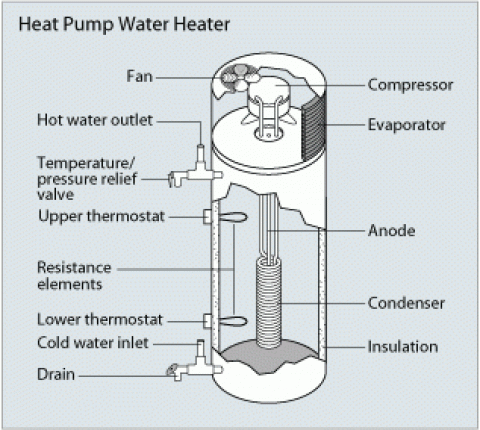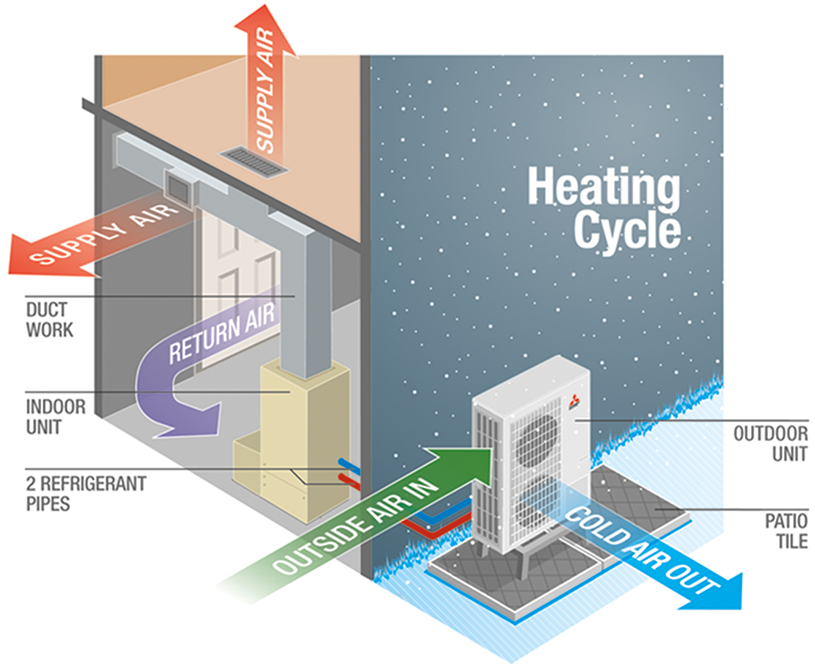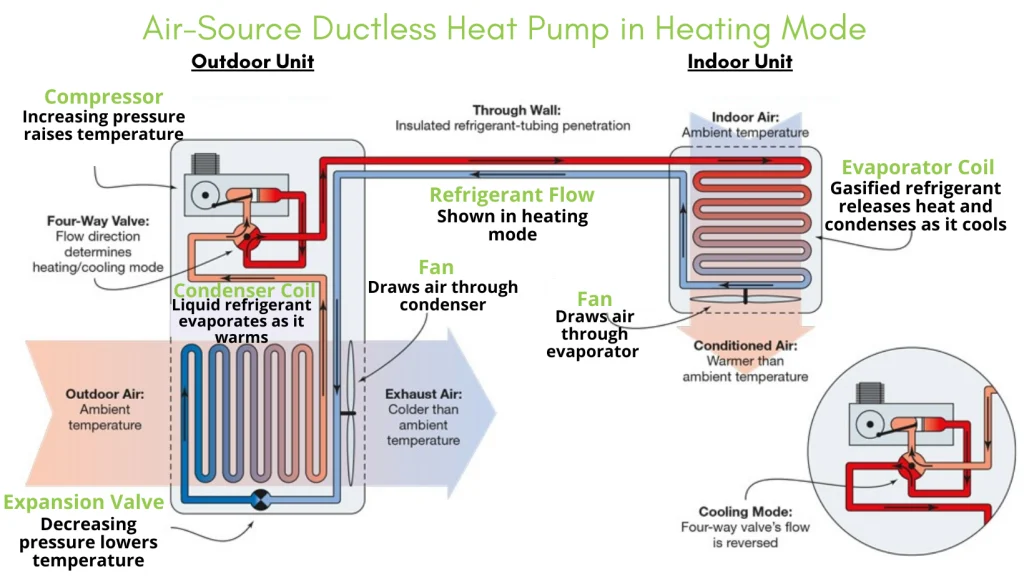When extreme heat and heat waves hit your area, your heat pump becomes your best friend for staying cool and comfortable. But here’s the thing—a little prep work can make all the difference between struggling through the scorching temperatures and cruising through them with ease.
We’ve helped thousands of homeowners optimize their heat pump performance during extreme heat, and we’ve learned exactly what works (and what doesn’t). Here are our top six heat pump tips to maximize cooling efficiency when temperatures soar.
1. Clean Your Heat Pump Filters (This Is Big!)
Let’s start with the most important heat pump maintenance tip: clean filters are everything. Seriously, this is the #1 culprit behind degraded heat pump cooling performance during heat waves.

Check the filters in all your indoor heat pump units (mini-splits) and give them a good cleaning if they’re dirty. It’s easier than you think, and the cooling performance boost is immediate. Clean filters mean better airflow, which means your heat pump system doesn’t have to work as hard to keep you comfortable during extreme heat.
For mini-splits, you’ll want to check both ceiling-mounted and wall-mounted units. The good news? Most filters just pop right out and can be cleaned with water and a gentle brush.
We’ve got you covered with step-by-step videos from our team showing exactly how to do this:
It’s easier than you think!
2. Clear Off Your Heat Pump’s Outdoor Unit
Your heat pump’s outdoor condenser unit is working overtime during extreme heat, so give it some breathing room. Leaves, twigs, pollen, and general debris can block airflow and seriously reduce your heat pump’s cooling efficiency.
Here’s what to do: Gently rinse the outdoor heat pump unit with a hose to clear away any buildup. Don’t use high pressure—just a gentle rinse will do the trick. Think of it as giving your heat pump a refreshing shower so it can keep cooling your home efficiently.
Adrian from our install team walks you through the whole process here—it’s quick and straightforward.

3. Optimize Your Heat Pump Thermostat Settings
We get it—when it’s blazing hot outside, the temptation is to crank that thermostat down to arctic levels. But here’s the reality: setting your heat pump thermostat way lower won’t cool your home any faster during a heat wave. It just makes your system work harder and your energy bills climb higher.
The Department of Energy recommends 78°F as the sweet spot for both comfort and heat pump efficiency during hot weather. Pick a comfortable temperature and let your heat pump do its thing. These systems are designed to maintain consistent temperatures efficiently during extreme heat—trust the process.
4. Boost Your Fan Speed (Mini-Splits)
If you have mini-splits, try setting your fan to the highest speed you’re comfortable with. Higher fan speeds help circulate air more effectively throughout your space, which can make you feel cooler even at the same temperature setting.
Here’s a quick video showing you how to adjust your fan speed—it’s just a few button presses on your remote.
It’s like having a gentle breeze indoors—sometimes that air movement is exactly what you need to feel comfortable.

5. Keep the Airflow Flowing
This one seems obvious, but you’d be surprised how often it gets overlooked. Make sure nothing is blocking your vents—no furniture pushed up against mini-split units, no curtains draped over return grills, no boxes stacked in front of duct vents.
Your heat pump needs to breathe to do its job effectively. Clear pathways mean optimal performance.
6. Don’t Shut It Off Overnight
Here’s where we see a lot of folks make a well-intentioned mistake. It might seem logical to turn your heat pump off at night to save energy, but during extreme heat, this actually backfires.
Heat pumps work most efficiently when they’re maintaining a consistent temperature. When you shut them off and turn them back on later, they have to work much harder (and use more energy) to bring your home back to a comfortable temperature.
Going away for a few days? You can raise the temperature slightly—maybe 3-5 degrees—but avoid dramatic swings. Small adjustments are much easier on your system and your energy bill.
The Bottom Line on Heat Pump Performance in Extreme Heat
Your heat pump is designed to handle extreme heat and hot weather, but these simple heat pump maintenance steps help it work smarter, not harder. A little heat pump care and smart usage goes a long way toward keeping you comfortable while keeping your energy costs in check during heat waves.
Remember, we’re all in this together when it comes to staying cool and comfortable during extreme temperatures. Heat pump systems are pretty amazing when they’re well-maintained and used properly—they’ll keep you comfortable through whatever hot weather Mother Nature throws your way.
Stay cool out there, and remember: taking care of your heat pump means it’ll take care of you when you need it most.
Need help with your heat pump or have questions about performance? Our Service Team is here to help you get the most out of your system. Contact us at service@elephantenergy.com.



